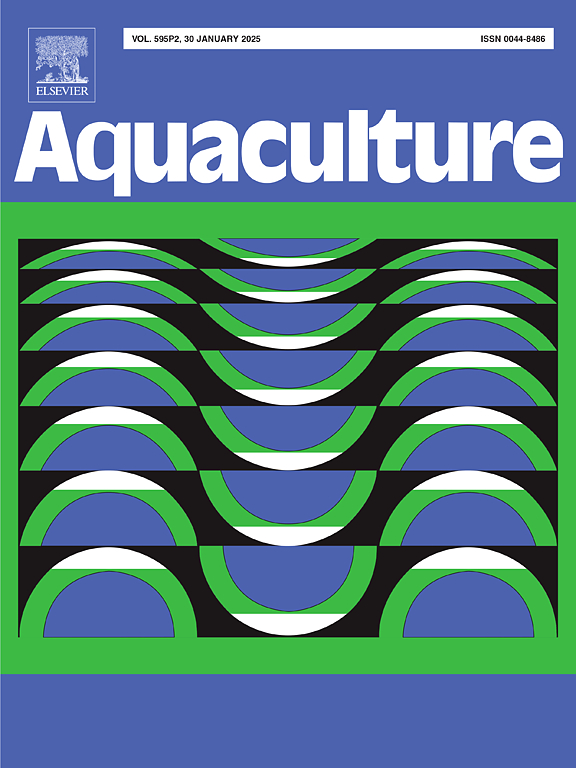Genome-wide identification, evolution, diversity and expression of Caspase gene family in Haliotis discus hannai
IF 3.9
1区 农林科学
Q1 FISHERIES
引用次数: 0
Abstract
Apoptosis is crucial in the immune defense mechanisms of mollusks. In this study, 25 Caspase genes were identified from Haliotis discus hannai’ genome. Through structural and evolutionary relationship analysis, highly conserved data were observed between H. discus hannai and other mollusks in the Caspase. Notably, the first discovery of Caspase-9 in abalones in this study. Collinearity analysis detected numerous tandem duplication events within the Caspase genes, implicating these duplications as the principal evolutionary driver of the Caspase family in H. discus hannai. Sequence diversity analysis found 216 missense mutation sites in Caspase genes of H. discus hannai. Alternative splicing analysis revealed multiple splicing sites and events in Caspase of H. discus hannai. Additionally, differential alternative splicing analysis showed the significant induction of Caspase-2, 3, and 8 variants following Vibrio infection. Transcriptome quantitative and qRT-PCR demonstrated that most Caspase genes in H. discus hannai respond to heat and Vibrio inoculation. Our findings offer novel perspectives on Caspase function and immune modulation mechanisms in H. discus hannai.
求助全文
约1分钟内获得全文
求助全文
来源期刊

Aquaculture
农林科学-海洋与淡水生物学
CiteScore
8.60
自引率
17.80%
发文量
1246
审稿时长
56 days
期刊介绍:
Aquaculture is an international journal for the exploration, improvement and management of all freshwater and marine food resources. It publishes novel and innovative research of world-wide interest on farming of aquatic organisms, which includes finfish, mollusks, crustaceans and aquatic plants for human consumption. Research on ornamentals is not a focus of the Journal. Aquaculture only publishes papers with a clear relevance to improving aquaculture practices or a potential application.
 求助内容:
求助内容: 应助结果提醒方式:
应助结果提醒方式:


